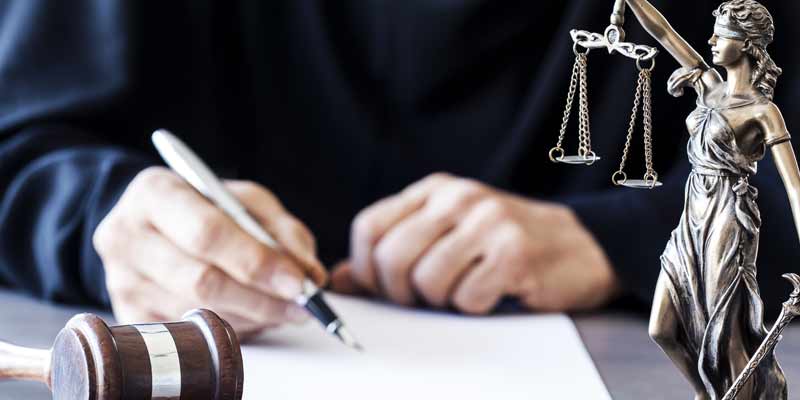Stop Sign Violations and How to Fight Them
Published by the Gordon Slade Law Firm – San Antonio Traffic Violation Attorneys
Stop Sign Violations and How to Fight Them in Bexar County
Traffic violations are a common concern for drivers across the country, and among these, stop sign violations are frequently cited by law enforcement. If you’re a Bexar County resident, understanding your rights and available legal strategies can significantly impact a stop sign violation ticket. This guide will help you understand what constitutes a stop sign violation, the potential consequences, and the best ways to fight or contest these charges.
What Is a Stop Sign Violation?
A stop sign violation occurs when a driver fails to come to a complete stop at a designated stop sign. In Texas, the law requires drivers to come to a full stop, meaning they must halt their vehicle completely and ensure it is safe to proceed before moving forward. This includes stopping at the white line, crosswalk, or the intersection itself if no line or crosswalk exists.
Common reasons for violations include rolling stops, distraction, neglecting to observe crossing traffic, or intentional disregard of traffic laws. Police officers often cite stop sign violations during routine traffic stops, particularly when a vehicle fails to come to a complete halt or when there is a clear visual indication of a violation.
Consequences of a Stop Sign Violation in Bexar County
Receiving a ticket for a stop sign violation can seem minor, but it can have significant repercussions:
- Fines: Typically, the fine in Bexar County ranges from $100 to $200, but it can vary based on the circumstances and whether it’s a repeat offense.
- Points on Your Driving Record: Texas assigns points to your driving record for traffic tickets. Accumulating points can lead to increased insurance premiums and, in some cases, license suspension.
- Legal Troubles: Repeated violations or failure to address citations can escalate legal issues, including court appearances and potential losses of driving privileges.
- Insurance Rates: Traffic tickets, including stop sign violations, can lead to higher auto insurance premiums, sometimes significantly.
Given these potential consequences, it’s vital to understand how to contest or fight a stop sign violation if you believe the citation was unjustified.
How to Fight a Stop Sign Violation in Bexar County
Fighting a traffic ticket involves challenging the citation in court, gathering evidence, and presenting your case effectively. Here’s a step-by-step approach tailored to Bexar County residents:
1. Review the Citation and Understand the Charge
Before doing anything, carefully read the ticket to understand the specifics: date, time, location, and the alleged violation. Take note of court instructions and deadlines for responding.
2. Gather Evidence
Evidence is critical when contesting a ticket. You may want to:
- Photos or Videos: If you have photographs or videos that show your compliance or contradict the officer’s account, these can be powerful.
- Witness Statements: Eyewitness testimony from passengers or other drivers at the scene can support your case.
- Traffic Condition Evidence: Photos of the intersection at the time of the violation might demonstrate obscured signs, poor visibility, or other conditions that contributed to the violation.
3. Check for Legal Defenses
Some common defenses against a stop sign violation include:
- Failure to Observe the Sign: You might argue that the sign was obscured, missing, or improperly placed.
- Complete Stop Not Observed: If you can demonstrate that you came to a complete stop, but the officer misreported your action, this could be a defense.
- Emergency Situations: In some cases, emergency circumstances might justify your actions.
- Mistaken Identity: If there’s uncertainty about whether you were the vehicle involved, this could be relevant.
4. Attend Your Court Hearing
You have the right to contest the ticket in Bexar County courts. Attend the scheduled hearing, dress professionally, and be prepared to present your evidence and arguments clearly and respectfully.
- Plea Options: You can plead guilty, not guilty, or no contest. Pleading not guilty allows you to fight the ticket.
- Present Your Case: Explain your defense, show evidence, and answer questions from the judge or prosecutor.
5. Consider Legal Assistance
If you’re unsure how to proceed or if the violation could impact your driving record significantly, hiring a traffic attorney experienced in Bexar County traffic laws may be beneficial. An attorney can help evaluate your case, craft a defense, and negotiate for penalties or fines reduction if necessary.
Additional Tips for Fighting a Stop Sign Ticket
- Act Promptly: Don’t delay attending court or responding to tickets. Missing deadlines can lead to license suspension and increased fines.
- Stay Calm and Respectful: Court proceedings can be intimidating, but maintaining composure and respectful behavior can positively influence the judge’s perception.
- Explore Defensive Driving: In Texas, eligible drivers might attend a defensive driving course to





